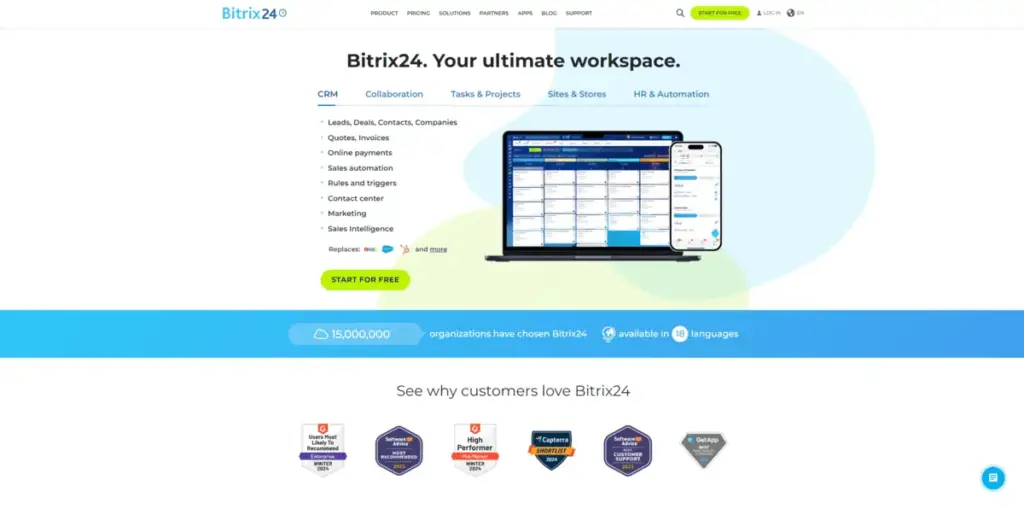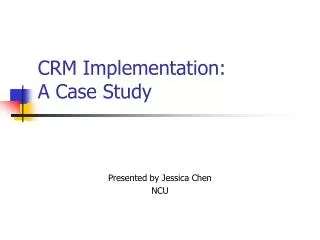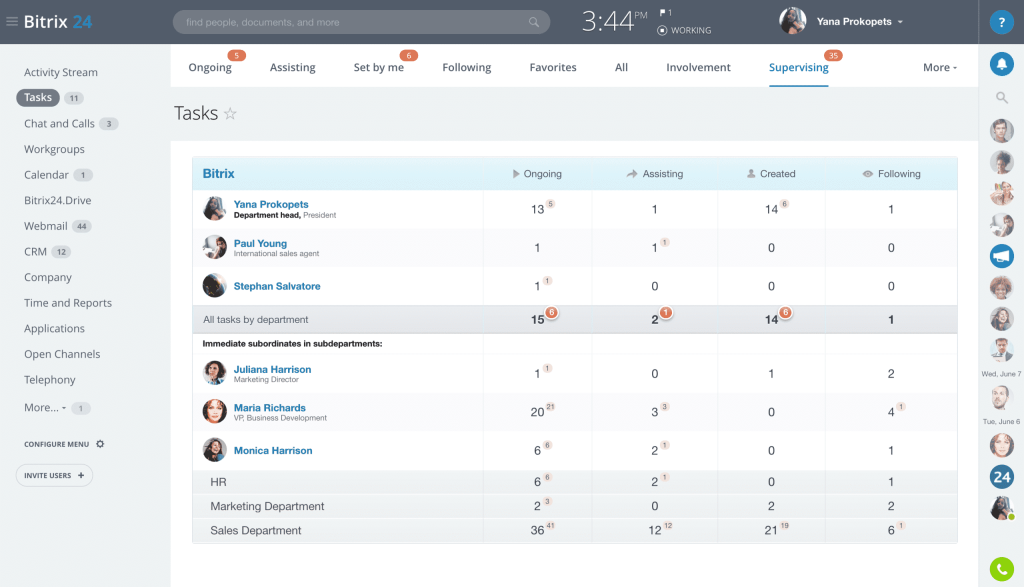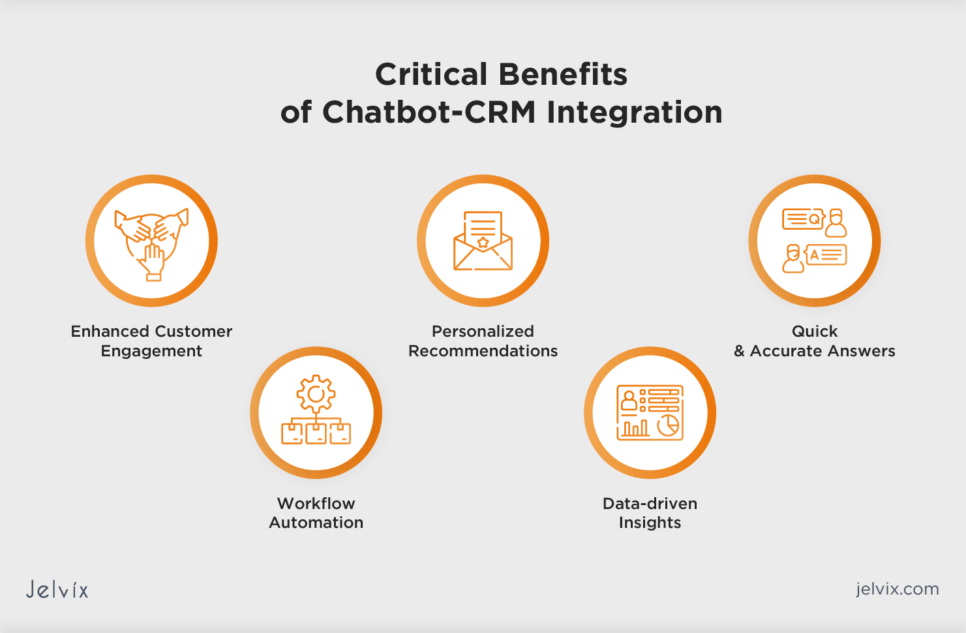Small Business CRM Security in 2025: A Comprehensive Guide to Protecting Your Customer Data

Small Business CRM Security in 2025: A Comprehensive Guide to Protecting Your Customer Data
In the ever-evolving digital landscape, small businesses face a constant barrage of threats. Data breaches, cyberattacks, and privacy violations are no longer distant possibilities; they are real and present dangers. For small businesses that rely on Customer Relationship Management (CRM) systems to manage their customer interactions and data, the security of that system is paramount. This comprehensive guide delves into the critical aspects of small business CRM security in 2025, providing insights, strategies, and best practices to safeguard your valuable customer information.
Understanding the Importance of CRM Security
A CRM system is more than just a tool; it’s the lifeblood of many small businesses. It houses sensitive information like customer names, contact details, purchase history, and even financial data. Losing control of this data can have devastating consequences, including:
- Financial Loss: Data breaches can lead to hefty fines, legal fees, and the cost of recovering from the attack.
- Reputational Damage: A security incident can erode customer trust and damage your brand’s reputation, making it difficult to attract and retain customers.
- Operational Disruption: Cyberattacks can cripple your business operations, leading to downtime, lost productivity, and missed opportunities.
- Legal and Regulatory Penalties: Non-compliance with data protection regulations like GDPR and CCPA can result in significant penalties.
Investing in robust CRM security is not an option; it’s a necessity. It protects your business from these risks and allows you to focus on what matters most: serving your customers and growing your business.
Key Security Threats Facing Small Businesses in 2025
The threat landscape is constantly changing, and small businesses are increasingly targeted by sophisticated cyberattacks. Here are some of the key threats you should be aware of in 2025:
1. Phishing and Social Engineering
Phishing attacks, where attackers use deceptive emails, messages, or websites to steal credentials or install malware, remain a persistent threat. Social engineering, which involves manipulating individuals into divulging sensitive information or performing actions that compromise security, is also on the rise. Attackers are becoming more sophisticated, using personalized attacks that exploit human vulnerabilities.
2. Ransomware Attacks
Ransomware, a type of malware that encrypts your data and demands a ransom for its release, continues to be a major threat. Small businesses are particularly vulnerable because they often lack the resources to implement robust security measures and recover from an attack. In 2025, ransomware attacks are expected to become even more targeted and sophisticated, with attackers focusing on high-value data within CRM systems.
3. Data Breaches
Data breaches can occur through various means, including vulnerabilities in CRM software, weak passwords, insider threats, and compromised third-party integrations. The consequences of a data breach can be severe, leading to financial losses, reputational damage, and legal liabilities.
4. Insider Threats
Insider threats, whether malicious or unintentional, pose a significant risk to CRM security. Employees or former employees with access to sensitive data can intentionally or unintentionally compromise security through negligence, misuse of credentials, or malicious activities.
5. Supply Chain Attacks
Small businesses often rely on third-party vendors and service providers. Supply chain attacks exploit vulnerabilities in these relationships, where attackers target a third-party provider to gain access to the systems and data of their customers. This can be a particularly insidious threat because it can be difficult to identify and mitigate.
Essential Security Measures for Your CRM System
Protecting your CRM system requires a multi-layered approach that addresses various vulnerabilities. Here are some essential security measures to implement:
1. Strong Password Policies and Multi-Factor Authentication (MFA)
Strong passwords are the first line of defense against unauthorized access. Enforce strong password policies that require complex passwords, regular password changes, and the use of a password manager. Implement Multi-Factor Authentication (MFA) to add an extra layer of security by requiring users to verify their identity through a second factor, such as a one-time code sent to their mobile device. This significantly reduces the risk of account compromise.
2. Regular Software Updates and Patch Management
Keep your CRM software and all related applications up to date with the latest security patches. Software vendors regularly release updates to address vulnerabilities and improve security. Establish a patch management process to ensure that updates are applied promptly. This includes not only the CRM itself, but also the operating systems and any third-party integrations.
3. Access Control and User Permissions
Implement strict access control measures to limit user access to sensitive data. Grant users only the minimum level of access required to perform their job duties. Regularly review user permissions and revoke access for employees who no longer require it. This principle of least privilege minimizes the potential damage from insider threats and compromised accounts.
4. Data Encryption
Encrypt sensitive data both in transit and at rest. Encryption protects data from unauthorized access even if the system is breached. Use encryption for all data stored in your CRM system, including customer records, financial information, and any other sensitive data. Also, encrypt data transmitted between your CRM system and other applications or services.
5. Data Backup and Disaster Recovery
Implement a robust data backup and disaster recovery plan. Regularly back up your CRM data to a secure offsite location. Test your backup and recovery procedures regularly to ensure that you can restore your data quickly in the event of a data loss incident. This plan should include procedures for restoring data in the event of a cyberattack, hardware failure, or natural disaster.
6. Security Audits and Vulnerability Assessments
Conduct regular security audits and vulnerability assessments to identify and address weaknesses in your CRM system. Security audits involve a comprehensive review of your security practices and controls. Vulnerability assessments involve scanning your systems for known vulnerabilities. These assessments can help you proactively identify and mitigate security risks before they are exploited.
7. Employee Training and Awareness
Educate your employees about the importance of CRM security and provide them with regular training on security best practices. Train employees on how to identify and avoid phishing attacks, social engineering attempts, and other threats. Create a culture of security awareness within your organization to help prevent security incidents. This includes training on password security, data handling, and incident reporting.
8. Incident Response Plan
Develop and implement an incident response plan to address security incidents effectively. This plan should outline the steps to take in the event of a data breach, cyberattack, or other security incident. The plan should include procedures for identifying, containing, eradicating, and recovering from the incident. It should also include procedures for notifying affected parties and complying with legal and regulatory requirements.
9. Security Information and Event Management (SIEM)
Consider implementing a Security Information and Event Management (SIEM) system. A SIEM system collects and analyzes security logs from various sources, such as your CRM system, network devices, and servers. It can help you detect suspicious activity, identify potential threats, and respond to security incidents more effectively. This provides real-time monitoring and threat detection capabilities.
10. Choose a Secure CRM Provider
When selecting a CRM provider, prioritize security. Look for providers that:
- Have a strong track record of security.
- Offer robust security features, such as encryption, MFA, and access controls.
- Comply with relevant data protection regulations.
- Provide regular security audits and penetration testing.
- Offer proactive threat monitoring and incident response capabilities.
Data Privacy and Compliance in 2025
Data privacy regulations are becoming increasingly stringent, and small businesses must comply with these regulations to avoid penalties and maintain customer trust. Here are some key aspects of data privacy and compliance in 2025:
1. GDPR and CCPA Compliance
The General Data Protection Regulation (GDPR) and the California Consumer Privacy Act (CCPA) are two of the most significant data privacy regulations. Small businesses that collect or process the personal data of EU residents or California residents must comply with these regulations. This includes obtaining consent for data collection, providing individuals with access to their data, and protecting data from unauthorized access.
2. Data Minimization
Collect only the data that is necessary for your business operations. Avoid collecting unnecessary data, as this increases your risk of data breaches and compliance violations. Regularly review the data you collect and delete any data that is no longer needed.
3. Data Retention Policies
Establish clear data retention policies that specify how long you will retain customer data. Only retain data for as long as it is needed for your business operations or as required by law. Implement procedures for securely deleting data when it is no longer needed.
4. Privacy Policies
Develop a comprehensive privacy policy that explains how you collect, use, and share customer data. Make your privacy policy easily accessible to your customers and update it regularly to reflect changes in your data practices.
5. Data Subject Rights
Be prepared to respond to data subject requests, such as requests for access, rectification, erasure, and portability of data. Establish procedures for handling these requests promptly and efficiently.
Future Trends in CRM Security
The landscape of CRM security is constantly evolving. Here are some future trends that small businesses should be aware of:
1. Artificial Intelligence (AI) and Machine Learning (ML)
AI and ML are being used to enhance CRM security in several ways, including:
- Threat Detection: AI and ML algorithms can analyze security logs and identify suspicious activity in real-time, helping to detect and prevent cyberattacks.
- Behavioral Analysis: AI can analyze user behavior to identify anomalies that may indicate a security breach.
- Automated Security Responses: AI can automate security tasks, such as incident response and vulnerability remediation.
2. Zero Trust Architecture
Zero trust is a security model that assumes no user or device can be trusted by default, regardless of whether they are inside or outside the network perimeter. Zero trust architecture requires continuous verification of identity and access based on factors such as device health, location, and user behavior. This can significantly improve the security of CRM systems by limiting access to only what is needed.
3. Blockchain Technology
Blockchain technology can be used to enhance the security and integrity of CRM data. Blockchain can be used to store customer data in a distributed and immutable ledger, making it more resistant to tampering and unauthorized access. This can be particularly useful for verifying data integrity and ensuring compliance with data privacy regulations.
4. Increased Automation
Automation will play an increasingly important role in CRM security. Automation tools can be used to streamline security tasks, such as vulnerability scanning, patch management, and incident response. This can help small businesses improve their security posture and reduce their reliance on manual processes.
5. Security as a Service (SaaS)
Small businesses are increasingly turning to security as a service (SaaS) providers to manage their CRM security. SaaS providers offer a range of security services, such as threat detection, incident response, and vulnerability management, at a more affordable price than building an in-house security team. This allows small businesses to leverage the expertise and resources of security professionals without the high cost of employing them directly.
Implementing a Proactive Approach to CRM Security
A reactive approach to CRM security is not sufficient. Small businesses must adopt a proactive approach that involves:
1. Risk Assessment
Conduct a comprehensive risk assessment to identify potential security threats and vulnerabilities. This assessment should include an analysis of your CRM system, your data, your users, and your third-party integrations. The risk assessment should be updated regularly to reflect changes in the threat landscape.
2. Security Planning
Develop a comprehensive security plan that outlines your security goals, strategies, and procedures. This plan should be aligned with your business objectives and should be reviewed and updated regularly. The security plan should include procedures for incident response, data backup and recovery, and employee training.
3. Continuous Monitoring
Implement continuous monitoring to detect and respond to security threats in real-time. Use security monitoring tools, such as SIEM systems, to collect and analyze security logs. Regularly review security alerts and take appropriate action to address any threats. This includes actively monitoring for suspicious activity and unusual behavior.
4. Regular Testing and Evaluation
Regularly test and evaluate your security controls to ensure that they are effective. This includes conducting penetration testing, vulnerability assessments, and security audits. Use the results of these tests to identify and address any weaknesses in your security posture.
5. Collaboration and Information Sharing
Collaborate with other businesses and security professionals to share information about security threats and best practices. Participate in industry forums and security communities to stay informed about the latest threats and vulnerabilities. Share information about security incidents to help other businesses protect themselves.
Conclusion: Securing Your CRM for a Secure Future
In 2025 and beyond, small businesses must prioritize CRM security to protect their valuable customer data and maintain their competitive edge. By implementing the security measures, staying informed about the latest threats, and adopting a proactive approach, you can significantly reduce your risk of data breaches, cyberattacks, and privacy violations. Remember, CRM security is an ongoing process, not a one-time fix. Stay vigilant, adapt to the changing threat landscape, and invest in the security of your CRM system to ensure a secure future for your business.
By following these guidelines, small businesses can navigate the complexities of CRM security in 2025, protecting their customer data and building a foundation of trust with their customers. A secure CRM system is not just a technical requirement; it is a business imperative.



